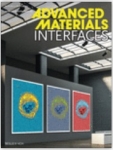
Project manager:
Manager Prof. Grzegorz Przybylski, NBMC Coordinator: Dr. Tomasz Zalewski
Budget:
1 874 340,00 PLN (200 000,00 PLN – NBMC)
Contract number:
1st Polish-Chinese/Chinese-Polish Joint Research Call, WPC1/BCL/2019
The project is carried out in a consortium led by the Institute of Human Genetics of the Polish Academy of Sciences. MRI imaging tests are carried out at the NanoBioMedical Center, AMU.
T-cell acute lymphoblastic leukemia (T-ALL) is an aggressive malignancy with a poor prognosis. Effective therapies for T-cell malignancies are lacking. In our previous study, we showed high expression of BCL11B in T-ALL (1) and massive apoptosis upon BCL11B gene suppression in malignant, but not in normal T-cells (2). In independent studies, we and others showed that BCL11B knock-out in normal T-cells leads to their transformation to induced T-to-natural killer (ITNK) cells which exhibit anti-tumor activity in vitro and in vivo (3). Based on these preliminary results, this study aims to determine the therapeutic effect of BCL11B inhibition in patient-derived T-ALL xenografts NSI (NOD-scid-IL2Rg−/−) mouse model and in a spontaneously developing T-ALL SCL/LMO1 transgenic mouse model (4) with CreER-Lox inducible BCL11B knock-out (SCL/LMO1/CreER-LoxBCL11B). We will further explore the mechanisms of BCL11B regulation and BCL11B targets in T-ALL cell lines (Jurkat and Molt-4) as well as in primary T-ALL cells and will identify novel surface markers of T-ALL (regulated by BCL11B or BCL11B regulator) for DNA aptamer design through this project. We will establish patient-derived T-ALL xenografts by injecting primary T-ALL cells into NOD-scid-IL2Rg−/− mice and evaluate the anti-T-ALL efficacy of "sgc8c" DNA aptamers recognizing the protein tyrosine kinase 7 (PTK7) expressed on human T-cell acute lymphoblastic leukemia cells (5). The recently generated in the Institute of Human Genetics PAS in Poznań SCL/LMO1/CreERLoxBCL11B mouse model will be used to study the effects of BCL11B inhibition in a whole organism, including the induction of apoptosis and transcriptome analysis of the malignant and normal T-cells. Further, the generation of induced T-to-natural killer (ITNK) cells upon BCL11B knock-out and their anti-leukemic activity will be assessed. In the proposed project we will use two unique novel models to study in vivo the effects of BCL11B suppression in malignant T cells. This shell allow to unravel its role in the course of the malignancy. We expect that suppression of BCL11B will lead to apoptosis of malignant T-cells and generation of anti-tumor ITNK cells that should result in a cure or markedly prolonged survival of T-ALL mice. Because in the majority of tissues BCL11B is not expressed, we hope that the side effects of its suppression will be mild and acceptable. Since we already have a patent on BCL11B inhibition for treatment of T-cell neoplasm, in case of positive results in mouse models, we plan to develop human applicable methods of BCL11B suppression which could be used for treatment of T-cell leukemia and lymphomas.
Obszar badawczy:


